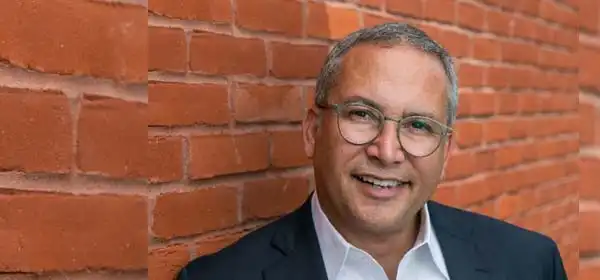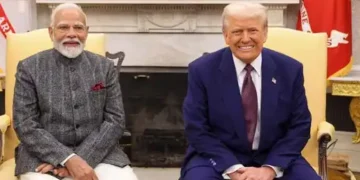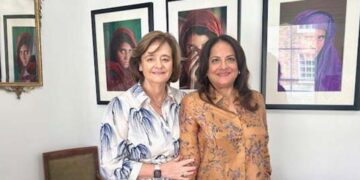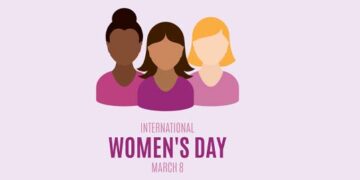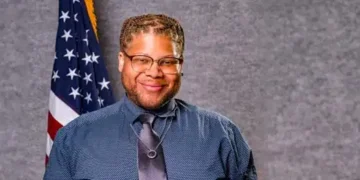 As I engaged in a virtual conversation with Dr. Adam Weinberg, Denison University’s 20th president, from his office overlooking the scenic Granville, Ohio campus, I sensed the weight of higher education’s current challenges and opportunities. Dr. Weinberg, a key figure in navigating these turbulent times, shared his insights on the rapidly shifting landscape of higher education.
As I engaged in a virtual conversation with Dr. Adam Weinberg, Denison University’s 20th president, from his office overlooking the scenic Granville, Ohio campus, I sensed the weight of higher education’s current challenges and opportunities. Dr. Weinberg, a key figure in navigating these turbulent times, shared his insights on the rapidly shifting landscape of higher education.
Dr. Weinberg’s vision for Denison and higher education is deeply rooted in liberal arts principles. He emphasized the critical value of a broad-based education in an era of increasing specialization. His diverse career, from sociology professor to President and CEO of World Learning, has reinforced his belief in the importance of adaptability, critical thinking, and global awareness.
Since 2013, under Dr. Weinberg’s leadership, Denison has addressed major challenges in 21st-century higher education. The university has focused on affordability, career readiness, internationalization, civic education, learning outcomes, and social inclusion. Denison has expanded its curriculum to include new programs bridging traditional liberal arts with emerging fields, such as Global Commerce, Data Analytics, and Financial Economics.
Dr. Weinberg acknowledged the pressures facing higher education, including rising costs and questions about the value of a college degree. However, he views these challenges as opportunities for innovation and reinvention. The Austin E. Knowlton Center for Career Exploration, launched under his leadership, reimagines how liberal arts colleges prepare students for careers and lifelong personal growth.
The president emphasized that Denison’s focus on career readiness doesn’t compromise the broader goals of a liberal arts education. He highlighted that the skills most valued by employers align closely with those cultivated by a liberal arts education.
Dr. Weinberg’s passion for civic engagement was evident as he discussed Denison’s commitment to preparing active citizens for a democratic society. This commitment is reflected in the university’s focus on residential halls as sites for civic learning and the launch of the Red Frame Lab for design thinking.
Throughout the discussion, Dr. Weinberg emphasized the importance of mentorship, describing it as the defining feature of a truly impactful educational experience. He also addressed the challenge of fostering free expression while maintaining a respectful and inclusive community on campus.
As our conversation concluded, Dr. Weinberg advised students and parents to seek institutions that are forward-thinking yet grounded in timeless values. He believes that a great education should prepare students not just for their first job, but for a lifetime of learning and growth.
Reflecting on our discussion, it’s clear that Dr. Weinberg and Denison University are at the forefront of reimagining liberal arts education for the 21st century. Despite the challenges, institutions like Denison are evolving and reaffirming the enduring value of a liberal arts education in preparing the next generation of thinkers, leaders, and global citizens.
The path forward for higher education may be uncertain, but with visionary leaders like Dr. Weinberg at the helm, it’s clear that the liberal arts and sciences will continue to play a vital role in equipping students to navigate the complexities of our rapidly changing world. As we face the challenges of the 21st century, perhaps it’s time we all embraced the timeless wisdom of a liberal arts education – to think critically, engage deeply, and never stop learning.
Dr. Weinberg’s journey to his current conviction is as diverse as the liberal arts education he champions. Each step of his career has reinforced the importance of adaptability, critical thinking, and global awareness – all hallmarks of a liberal arts education. Under his leadership, Denison has been at the forefront of addressing the major challenges facing higher education in the 21st century.
One of the most significant innovations at Denison has been the expansion of the curriculum to include new programs that bridge traditional liberal arts with emerging fields. These new programs are forging new pathways for the liberal arts, evolving to meet the needs of the 21st century without abandoning their roots.
As we discussed the challenges facing higher education, Dr. Weinberg didn’t shy away from the tough issues. He acknowledged that rising costs, questions about the value of a college degree, and the rapid pace of technological change are all putting pressure on institutions like Denison. However, he sees these challenges as opportunities for innovation and reinvention.
The focus on career readiness at Denison doesn’t come at the expense of the broader goals of a liberal arts education. Dr. Weinberg pointed out that the skills employers consistently say they want – critical thinking, communication, problem-solving, adaptability – are precisely the skills that a liberal arts education cultivates. Denison is not just preparing students for jobs; they’re preparing them for life.
As our conversation turned to the future of higher education, Dr. Weinberg’s passion for civic engagement became evident. He believes that a liberal arts education is about more than individual success; it’s about preparing active citizens for a democratic society. Denison is not just educating students; they’re nurturing future leaders who can navigate complex global challenges.
Throughout our discussion, one theme kept resurfacing: the importance of mentorship. Dr. Weinberg asserted that at its core, a transformative education is about relationships. Denison has focused on deepening mentorship across campus because they believe it’s the defining feature of a truly impactful educational experience.
When asked about the biggest challenges and opportunities he sees for liberal arts colleges in the coming decade, Dr. Weinberg’s response was thoughtful and measured. He emphasized the need to continue innovating while staying true to core values. The liberal arts have always been about preparing students for an uncertain future, and that mission is more relevant now than ever.
Dr. Weinberg also addressed the increasing polarization on college campuses. He acknowledged the delicate balance of fostering an environment of free expression while maintaining a respectful and inclusive community. He believes it’s crucial for the growth and development of students to create spaces where diverse viewpoints can be expressed and engaged with critically and respectfully.
As our time drew to a close, I asked Dr. Weinberg for his advice to students and parents navigating the complex landscape of higher education. He encouraged them to look for institutions that are forward-thinking but grounded in timeless values. A great education, in his view, should prepare students not just for their first job, but for a lifetime of learning and growth.
In conclusion, it’s clear that Dr. Adam Weinberg and Denison University are at the forefront of reimagining liberal arts education for the 21st century. In a world of rapid change and uncertainty, the broad-based, adaptable skills fostered by a liberal arts education may well be the key to thriving in the future. Despite the challenges, institutions like Denison are evolving, innovating, and reaffirming the enduring value of a liberal arts education, preparing not just students for careers, but nurturing the next generation of thinkers, leaders, and global citizens who will shape our collective future.
Funcle Toby on TikTok with @tobyusnik. Tune into our weekly conversation and share your comments via Twitter to @Tusnik or on LinkedIn with @TobyUsnik.















